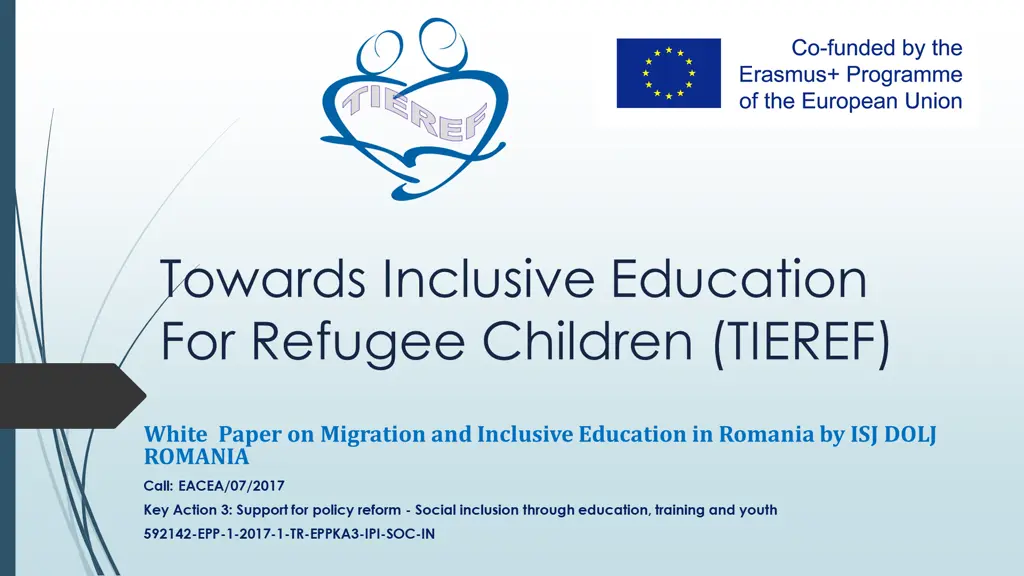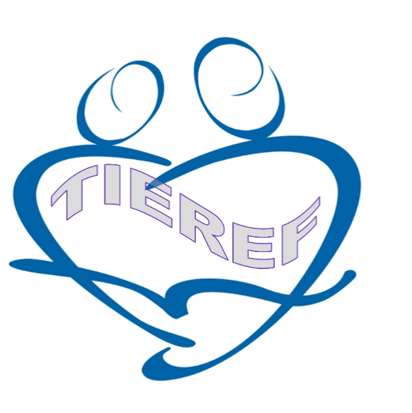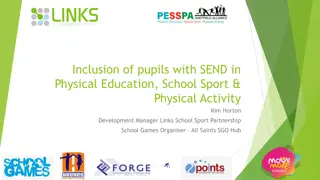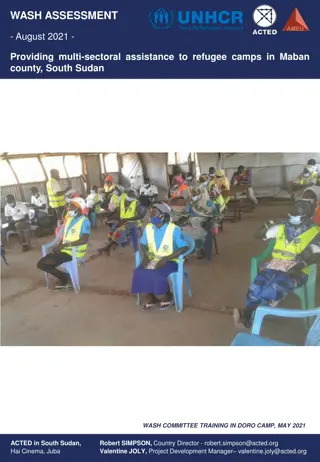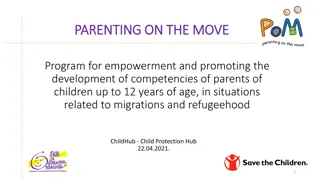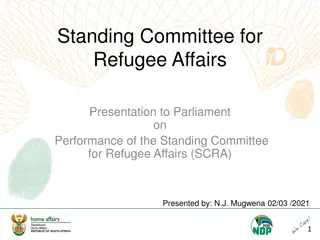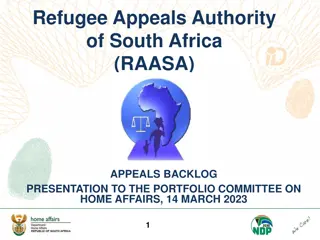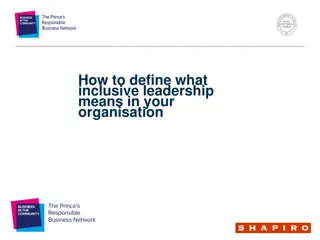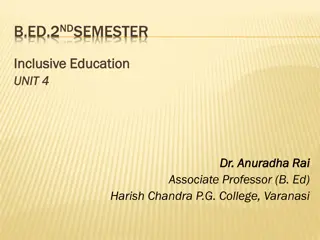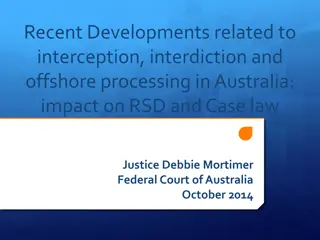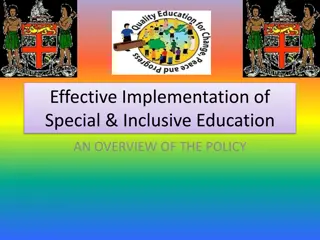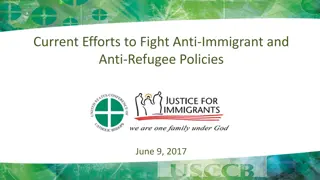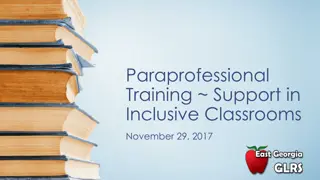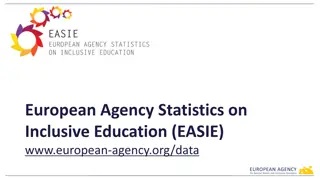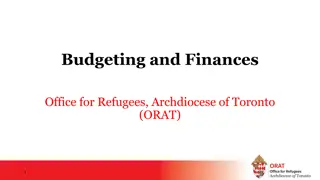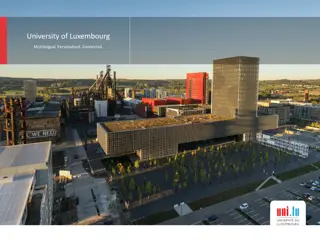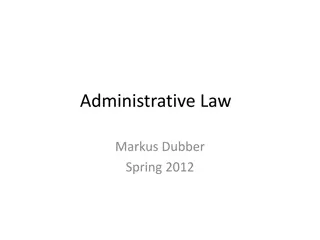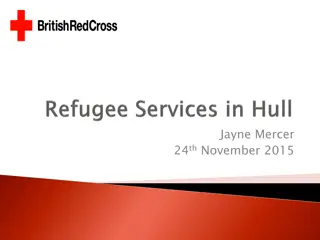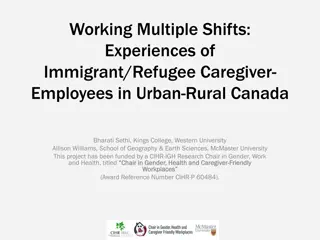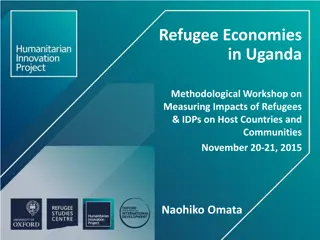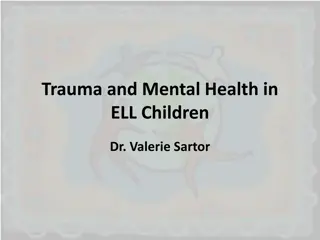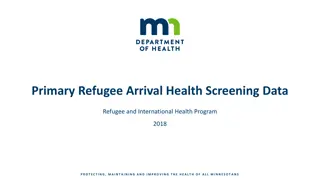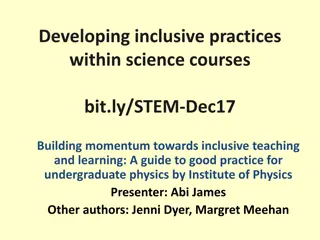Towards Inclusive Education For Refugee Children (TIEREF)
The migration process in Romania and the importance of inclusive education for refugee children. It highlights the role of migration policies, integration programs, and the involvement of schools and NGOs in supporting the education and social integration of migrant children.
- inclusive education
- refugee children
- migration policies
- integration programs
- schools
- Romania
- social inclusion
Download Presentation

Please find below an Image/Link to download the presentation.
The content on the website is provided AS IS for your information and personal use only. It may not be sold, licensed, or shared on other websites without obtaining consent from the author. Download presentation by click this link. If you encounter any issues during the download, it is possible that the publisher has removed the file from their server.
E N D
Presentation Transcript
Towards Inclusive Education For Refugee Children (TIEREF) White Paper on Migration and Inclusive Education in Romania by ISJ DOLJ ROMANIA Call: EACEA/07/2017 Key Action 3: Support for policy reform - Social inclusion through education, training and youth 592142-EPP-1-2017-1-TR-EPPKA3-IPI-SOC-IN
Migration is a process that needs to be managed, not a problem that needs to be solved.
Public migration policies in Romania are heavily influenced by European reference documents and are supported by EU funds. Romania has a national migration strategy of only about a decade, and during this period the number of third-country nationals residing in the country remained stable at around 50,000 people and the number of asylum seekers at about 1500 people. The most common countries of origin for both adults and foreign children and young people who have the right to reside in Romania are Moldova, Turkey, China, Syria and Israel. Education and training play an important role in the process of integrating migrants into the host society but also into the labour market, so particular attention should be paid to policies in the context of migration and especially mobility.
In Romania, the main responsibility for migration policy, including the integration of migrants, lies with the General Inspectorate for Immigration (IGI), a structure of the Ministry of Internal Affairs. Among other tasks, IGI manages the six reception centres for refugees, five located in different parts of the country, near national borders, and one in Bucharest. Once refugee status or subsidiary protection has been established, access to work and social services is granted equally, as for Romanian or EU citizens. IGI gives all migrants who have received some form of protection in Romania (refugee status or subsidiary protection) the opportunity to join the national integration programme. In each of the 6 regional centres for asylum seekers in Romania, the officer responsible for integration is deals with establishing the needs of migrants and monitoring the integration programme individually agreed with migrants. The integration programme provides them with an openness to Romanian language courses and other integration facilities, such as state subsidies, support for the identification of rental spaces, individual counselling and mediation in the labour market. This support is complemented by international organisations and local NGOs.
Children affected by migration go through a period of disrupture of their development, of childhood, including the ability to learn. All this can have long-term effects on them and society if they are not offered support. In order to facilitate the integration of migrant and refugee children in Romania, school units and NGOs are involved in educational, social and sports activities and connect them with other children and young people here. Through Erasmus+ projects, NGOs have obtained funding for projects aimed at increasing the capacity of migration and child protection professionals to identify, manage and prevent cases of gender- related violence against migrant children and young people (refugees, asylum seekers, third-country nationals) and to increase awareness and action among children and young migrants in situations of gender-related violence.
Through the TIEREF project: more than 500 teachers in Romania have worked with innovative tools made within the project, some have acquired knowledge, others have strengthened theirs about the inclusion in education of migrant children with refugee status. Through the collaboration of partners from Romania, Bulgaria, Greece, Italy and Turkey, 87 examples of good practice projects, consisting of manuals, worksheets, videos, toolkits, role-playing games, as well as guidance and evaluation advice that have been made available to teachers both on the project website and also on the ISJ Dolj website, have been collected and translated into the languages of the partner countries.
Through the TIEREF project: We held meetings, round tables, seminars, conferences, pilot trainings with teachers especially from Dolj County: Calafat, Bechet, Dabuleni, Craiova, Baile ti, but also from the rest of the country, meetings facilitated by educational project inspectors from each county. We have also collaborated with local communities in Dolj county Peer learning as an innovative method of promoting inclusive education, a method developed in the project in the GUIDE TO THE METHOD OF LEARNING IN PAIRS, was used in Romanian schools. Also the online tool for the methodology of assessment of prior knowledge and the recognition and validation of learning outcomes obtained during the learning process was very useful in the classroom, as it resulted in the piloting period.
What do we want to achieve in this area? Let us draw attention to the following needs that governance should take into account, needs raised in one way or another by other NGOs working in the field: Achieving legislation leading to improved access for children and young people to learning the Romanian language and facilitating the acquisition of specific knowledge, which is correlated with the profile of the future preparation corresponding to the year of study in which the student will be enrolled; Providing targeted support through funds and programmes;
Providing programmes for guiding and training the management of educational establishments and teachers to ensure accessible, quality and inclusive education for foreign children, asylum seekers and beneficiaries of international protection, by strengthening the capacity of schools to take on such pupils, specific, formal training programmes on diversity, intercultural pedagogy and language development; Inclusion in the national budget of funding per audient student With regard to early education, there is the need to ensure access to early education services for migrants in school establishments and to promote their integration into primary, secondary and upper secondary education, including vocational education and training schemes, in accordance with Article 28 of the Convention on the Rights of the Child and the ECAction Plan (2016).
Achieving the legislative framework for enrolling children and young people in the Integrated Information System of Education in Romania (SIIIR) so that they can exercise their rights, especially to textbooks, school furniture, supplies, social scholarships and Ministry of Education Programmes Regulation of school counseling of immigrants through the County Centers of Resources and EducationalAssistance Carrying out community programmes to familiarise immigrants with the specifics of our country: language, traditions, culture, etc. Involvement of support teachers to help migrant children and young people who are having difficulties in integrating into the education system, for learning the Romanian language (to acquire the language skills necessary to support assessments in each subject)
Develop and finance a national programme, at the level of the Ministry of Education, for the integration of migrant children and young people into the education system, including through programmes adapted to their needs, such as School after School, financed from the state budget or/and through the European Social Fund. The elaboration by the Ministry of Education, in collaboration with the Ministry of Internal Affairs, of a special methodology for attesting pre-university studies for foreigners who have obtained a form of protection in Romania and who do not have supporting documents of studies or who, for objective reasons, do not fall within the current legal provisions in the field of recognition and attestation of foreigners' studies in Romania, in order to facilitate access to the labour market or to continue studies, according to OUG no. 44/2004.
The development by the Ministry of Education of methodologies for assessing competences obtained by formal and informal means for foreign children and young people, asylum seekers and beneficiaries of international protection. Ensuring access to free education up to 12th grade for young migrants to avoid situations where they drop out of school due to high school costs. Simplification of procedures and efficiency of the process of recognition of diplomas of study for foreign children and young people, asylum seekers and beneficiaries of international protection.
Organising and conducting of the Romanian language course for migrants by: Teaching the intensive introductory course in the language Romanian adapted to the age of the learners and structured by levels of preparation. Allocation of the necessary budgets for the organisation and conduct of the intensive introductory course in the language of Romanian for foreign children and young people, asylum seekers and beneficiaries of international protection. Eliminate the limitation of the right of beneficiaries of international protection to participate in these courses only in the first year after obtaining the form of protection. Supplementing the number of locations where Romanian language courses are organised for children. Conduct of courses during the holidays, not only during the school year.
Access to the "Second Chance" programme through: Adaptation of the Second Chance Programme or the introduction of a curriculum adapted for foreign citizens and the efficiency of the Programme for migrant children and young people who, for various reasons, have dropped out of school or who have not been educated. The division of classes by age group, as mixing between minor and adult learners within the same class inhibits learning. Expanding the number of schools organising the Second Chance programme and publishing their list.
Access of young migrants to the labour market through: Ensuring access to vocational training and apprenticeship during the course of the "Second chance" programme Inclusion of refugees who do not have study documents in apprenticeship programmes at workplace (HG No 423/2019), in order to be qualified and to obtain a certificate of qualification.
